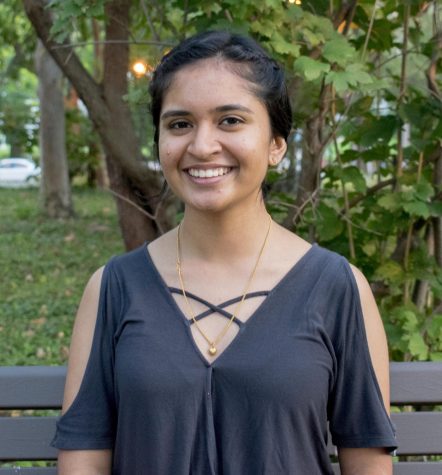Humanities@Work expands career program
February 3, 2017
If a Case Western Reserve University student is asked what their major is, they will might respond with some sort of engineering, business or science. However, according to Maggie Kaminski, the administrative director of the Baker-Nord Center for the Humanities, there are over 400 students who have currently declared at least a major or a minor in the humanities.
In order to help these students as they move on past college and into the workforce, the Baker-Nord Center has worked with other on-campus organizations, such as the Career Center, the Office of Corporate Relations and the Office of Government and Community Relations to expand Humanities@Work, a program that, according to its official website, is expected to “connect students with corporate, government, nonprofit and other partners through community discussions, networking events and paid career opportunities.”
Humanities@Work usually features panels and lectures, with an average of 20 to 50 people attending each event. The idea to have regular panels was first suggested by Gillian Weiss, associate professor in the History Department, and blossomed into a series of panels usually held twice a semester, with speakers who were successful professionals with various humanities backgrounds in non-academic careers.
“They come into talk about how their study has been important to them – not just in their lives, but in their careers,” said Peter Knox, director for the Baker-Nord Center.
However, the program was only recently expanded to connect students with jobs and internships. It kicks off on Friday, Feb. 3 with a resume review workshop for humanities students.
“In preparation for [this next step], we are having this event … to start trying to tell humanities students these opportunities are going to be upcoming and also to start preparing them for not only our internships but for the career fair and other ways,” said Kaminski.
This new expansion to the program originated in spring 2016, and was designed to reach out to humanities students with more career guidance. According to Knox, one of the prime motives for the Baker-Nord Center regarding the expansion to Humanities@Work is to help students understand the various career paths that are available for them after graduation.
With similar programs available in the engineering and business schools, Knox felt that it was important for Humanities@Work to offer career help to humanities students who do not want to delve further into academia after graduation.
“If you are a history major, but you don’t intend to go on to graduate school, you are probably not gonna talk to your history faculty members about what you are going to do with your life,” commented Knox.
As CWRU is a heavily STEM-oriented institution, Knox felt that the career guidance available is not as focused for humanity majors. He therefore thinks “it’s important to identify the employers who are not just open to hiring humanities students but really [want] to.”
Although Baker-Nord Center is the main sponsor of Humanities@Work, it also collaborates with the Corporate Relations Office and the Career Center to integrate more job resources.
“The Career Center is really anxious to be involved,” said Kaminski. “This is a way for them to also connect more closely with humanities students.”
As they move forward, Knox and Kaminski want Humanities@Work to not only provide guidance for current humanities students at CWRU, but also show prospective students that CWRU is committed to supporting students interested in the humanities, not just academically but also with their future careers. But in more concrete terms, the goal for them right now is to focus on paid summer internships and eventually move towards a practicum program similar to those available through the School of Engineering and the Weatherhead School of Management.
Humanities@Work will be offering five paid internships this summer.


